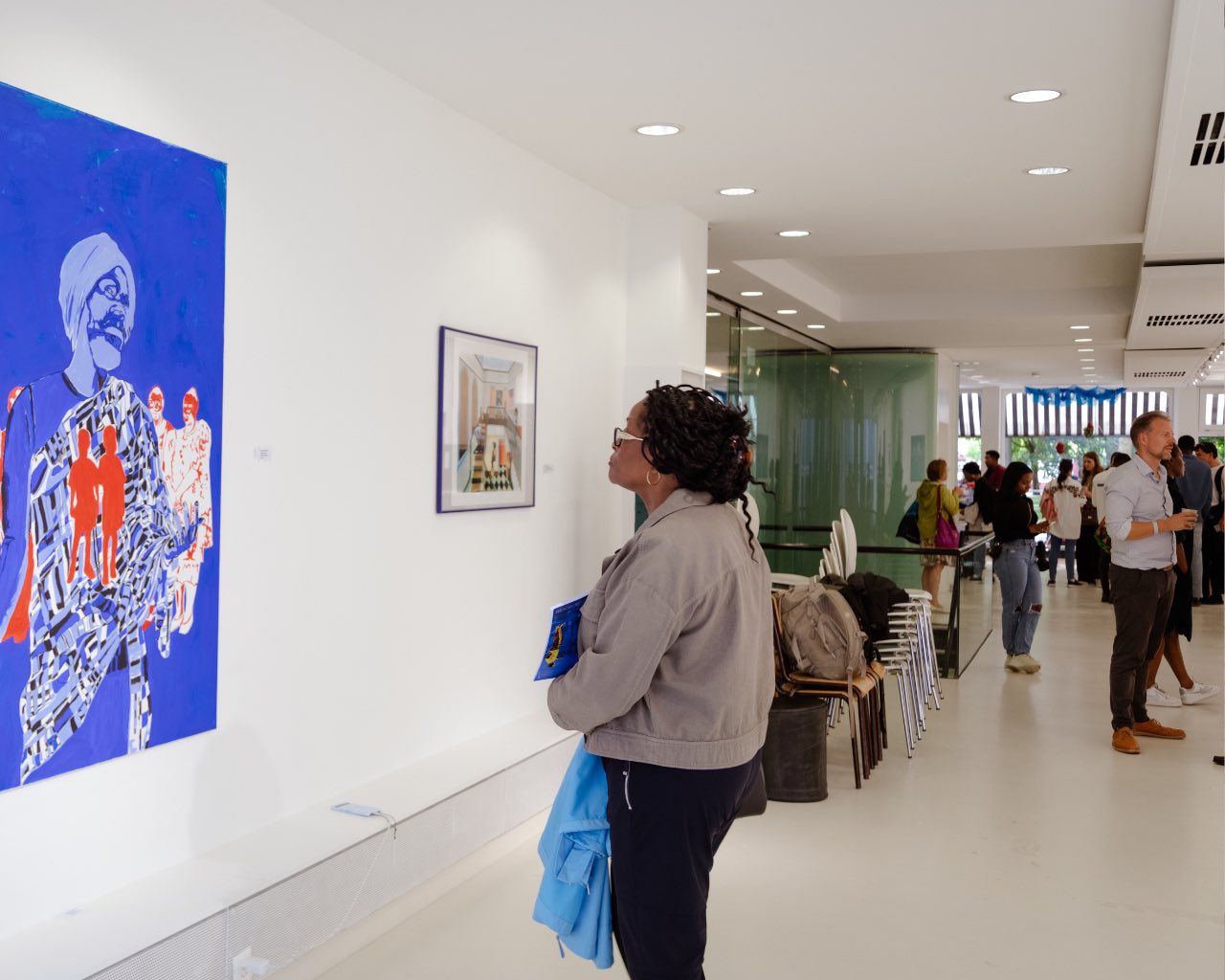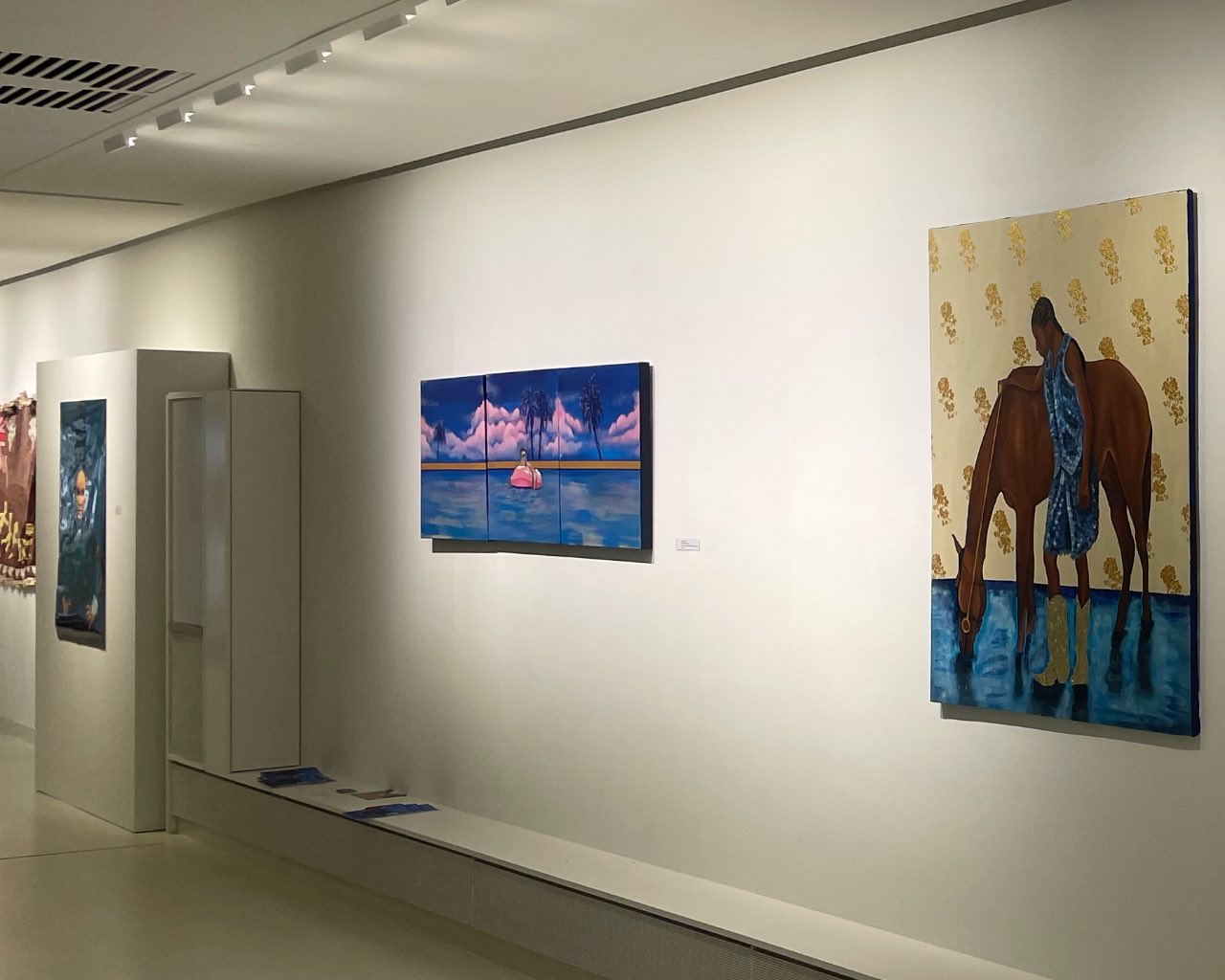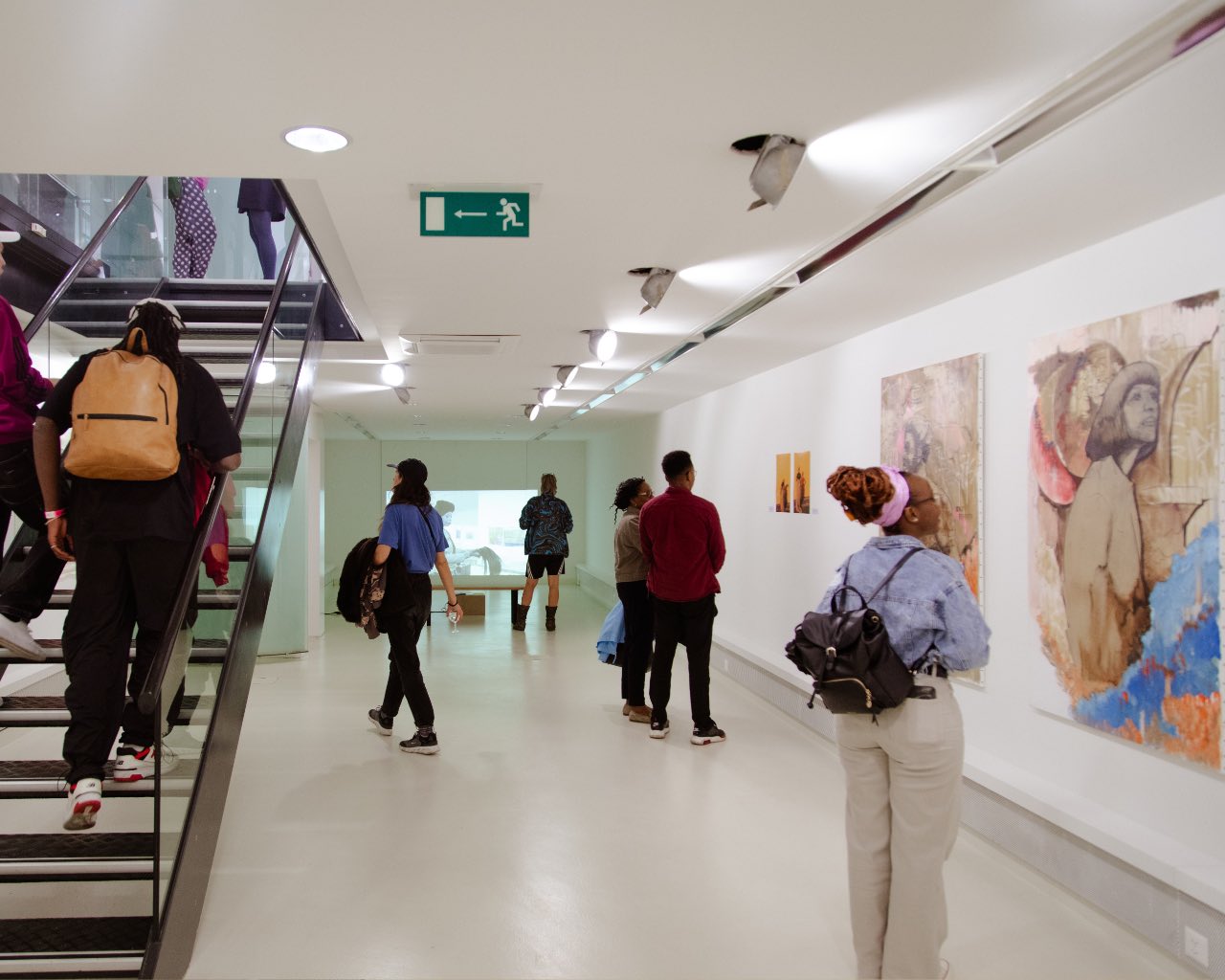INTRODUCTION
The traces of our lives are made up of memories that connect us to the source.
“[W]Here Now” reflects on the role of water as a conduit to the essence of our lives. This water constantly flows to map the pathways of our identities and remind us that we all come from somewhere.
Water is a vessel and connection to the source of all life that carries our stories, histories, and power. But where do we go to remember? And how do we know the importance of the importance of things we are re-membering? Because not all memories come from us, but a collective and generational pool of experience.
Our exhibition space becomes this site of memory where we conjure up what is already in us to better understand our place in the world.
Like Toni Morrison puts it –– all water has perfect memory and etched within us all are rivers, lakes, and seas that are trying to get back where they were – The source.
Just like water our artists are mapping out and activating different memories through creating. Neither time nor centuries of oppression have been, and can erase Africans’ true heritage. We’ll always find a way.
DATES: 11 - 17 June OPEN DAILY: 10 - 6PM
“[W]Here Now” reflects on the role of water as a conduit to the essence of our lives. This water constantly flows to map the pathways of our identities and remind us that we all come from somewhere.
Water is a vessel and connection to the source of all life that carries our stories, histories, and power. But where do we go to remember? And how do we know the importance of the importance of things we are re-membering? Because not all memories come from us, but a collective and generational pool of experience.
Our exhibition space becomes this site of memory where we conjure up what is already in us to better understand our place in the world.
Like Toni Morrison puts it –– all water has perfect memory and etched within us all are rivers, lakes, and seas that are trying to get back where they were – The source.
Just like water our artists are mapping out and activating different memories through creating. Neither time nor centuries of oppression have been, and can erase Africans’ true heritage. We’ll always find a way.
DATES: 11 - 17 June OPEN DAILY: 10 - 6PM




RAFIKI
B.1989. Rafiki’s interdisciplinary artworks find their starting point between photography and bead work, textiles, waste materials, and the use of objects imbued with memorial capacities.
With a process-based practice, Rafiki’s artworks are not ‘final’, and hold healing, remembrance, and cultural analysis as central. Artistic strategies in her works often avoid Western, anthropological gazes. Incorporating symbolism, fables, and tools from visual storytelling and oral history in her works, she invokes themes such as forced displacement, war, racialized understandings of Blackness and femininity, and burdened colonial traditions to control place and obliterate temporality.


